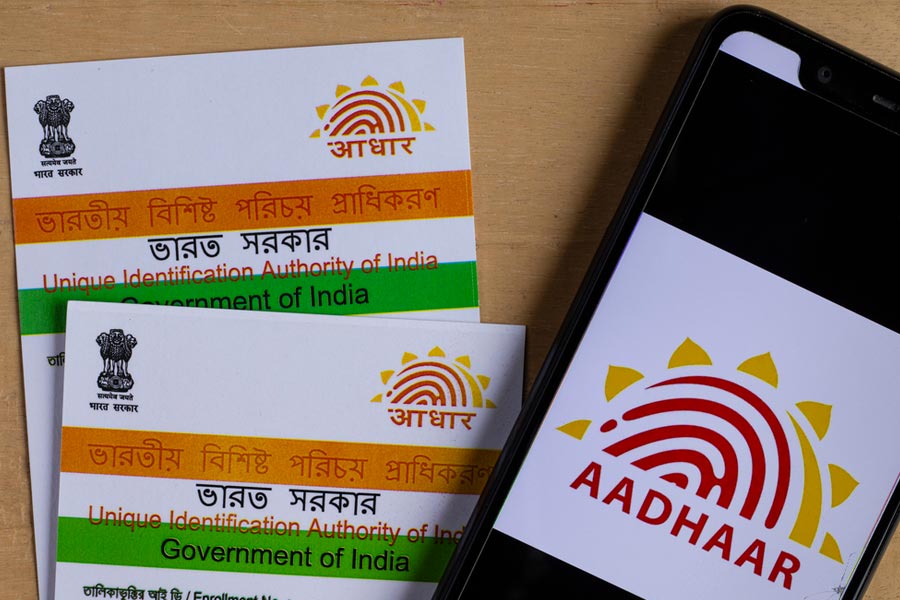The Supreme Court has ruled that an Aadhaar card cannot be considered valid proof of one’s date of birth, adding that the school-leaving certificate is more reliable.
The apex court noted that the Unique Identification Authority of India (UIDAI) had through two circulars in 2018 and 2023 clarified that Aadhaar cards could be used to establish the identity of a person but could not be the basis for determining someone’s date of birth.
A nine-judge constitution bench had also in the Justice K.S. Puttaswamy Vs Union of India and others case in 2019 clarified that Aadhaar was essentially an identity document created with certain unique features based on various other documents of
a person.
“We find that the UIDAI, by way of its Circular No. 08 of 2023, has stated, in reference to an office memorandum issued by the Ministry of Electronics and Information Technology dated December 20, 2018, that an Aadhaar card, while can be used to establish identity, it is not per se proof of date of birth,” a bench of Justices Sanjay Karoland Ujjal Bhuyan said in arecent judgment.
The bench passed the verdict while allowing the appeal filed by Saroj and her two minor sons challenging a Punjab and Haryana High Court order that had reduced the compensation amount awarded by the Motor Accidents Claims Tribunal (MACT) to ₹9,22,336 from ₹19,35,400 following the death of her husband in a road accident in Rohtak on August 4, 2015.
The insurer had challenged the tribunal’s order in the high court.
While reducing the amount, the high court had calculated the age of the deceased on the basis of the date of birth mentioned on his Aadhaar card. According to this data, his age was 47, but the date of birth mentioned in his school-leaving certificate put his age at 45. The MACT had taken into account the date of birth mentioned in the school-leaving certificate while fixing thecompensation amount.
Aggrieved, the deceased’s family had filed an appeal in the apex court.
“This court is of the view that the high court erred in undertaking the reduction. The high court relied on the age as mentioned in the Aadhaar card of the deceased, i.e. January 1, 1969. However, as submitted by the claimant-appellants, the school-leaving certificate records the date of birth of the deceased to be October 7, 1970,” Justice Karol, who authored thejudgment, observed.
“It has to be noted at the outset that a school-leaving certificate has been accorded statutory recognition,” the apex court said, citing sub-section (2) of Section 94 of the Juvenile Justice(Care and Protection of Children) Act, 2015.
“That being the position, as it stands with respect to the determination of age, we have no hesitation in accepting the contention of the claimant-appellants based on the school-leaving certificate. Thus, we find no error in the learned MACT’s determination of age based on the school-leaving certificate,” Justice Karol added.
The bench noted that no reason had been recorded by the high court while reducing the rate of interest to 6 per cent from the 7.5 per cent fixed by the MACT.
Justice Karol said: “The high courts cannot lose sight of the fact that compensation received by way of claims filed before the MACT is either borne out of injury or death of the claimant or family member of the claimants and so, the amount awarded must do justice to them.
“It necessarily has to be just and reasonable. In that view of the matter, we find it fit to enhance the rate of interest to 8 per cent to be paid from the date of filing of theclaim petition.”











